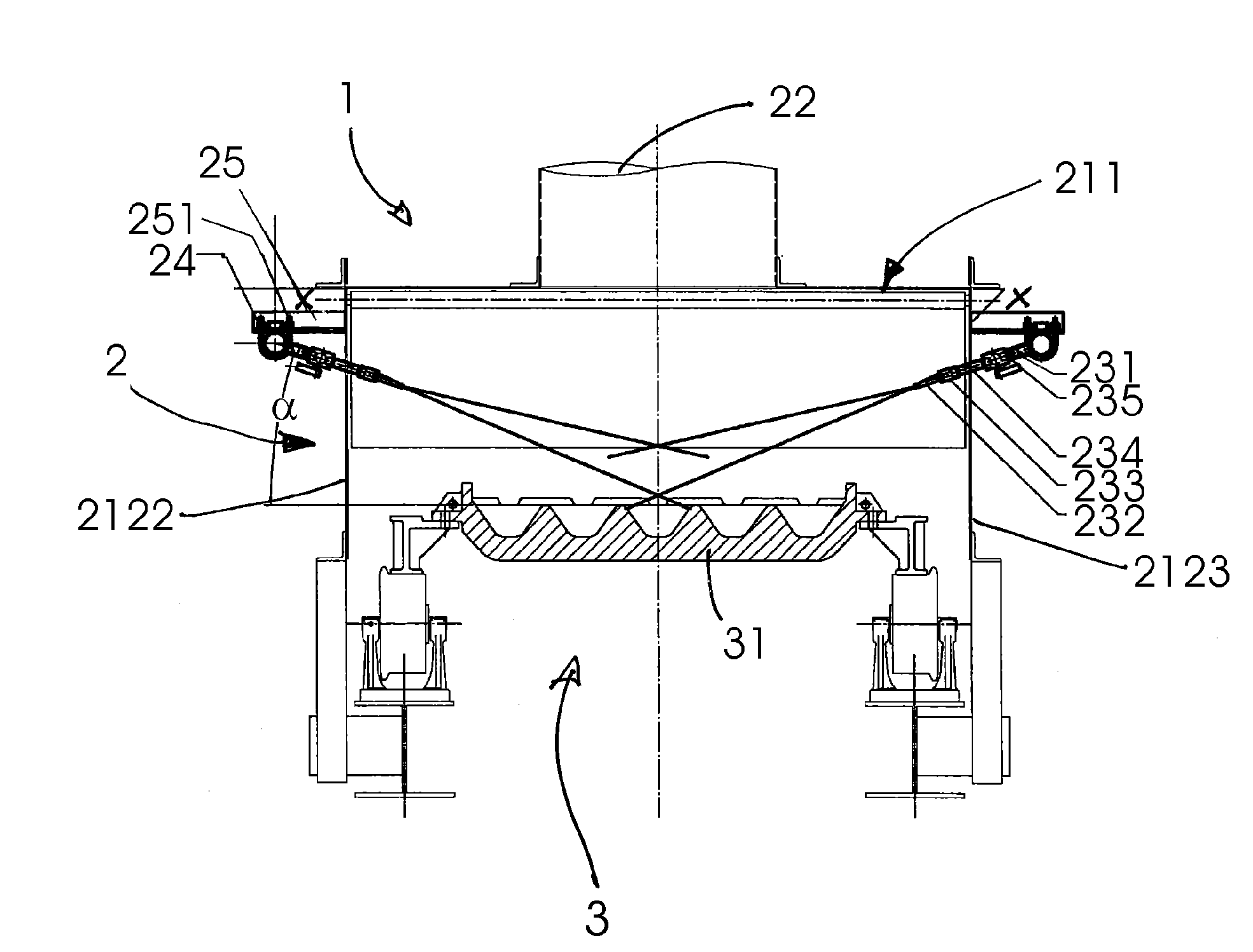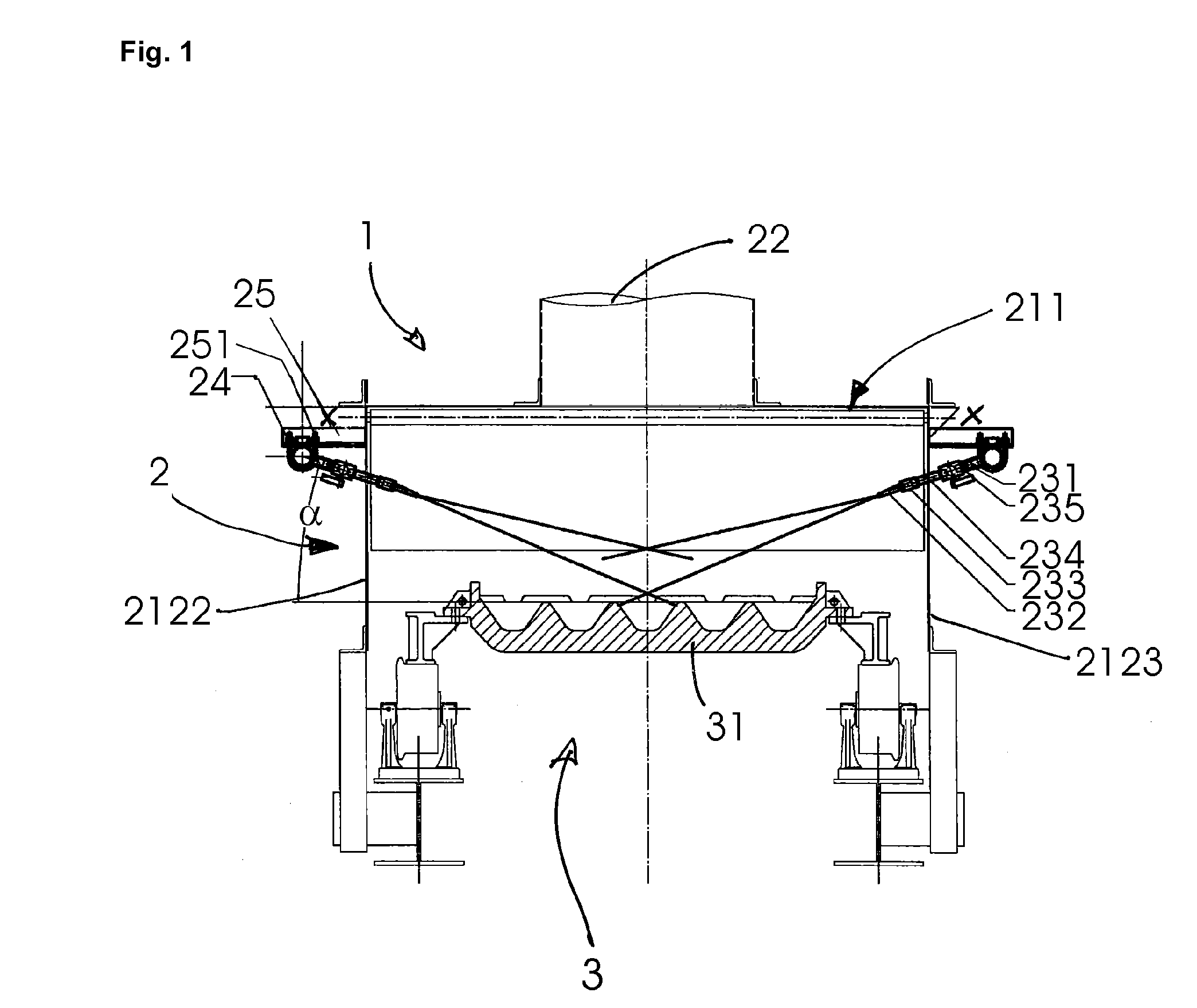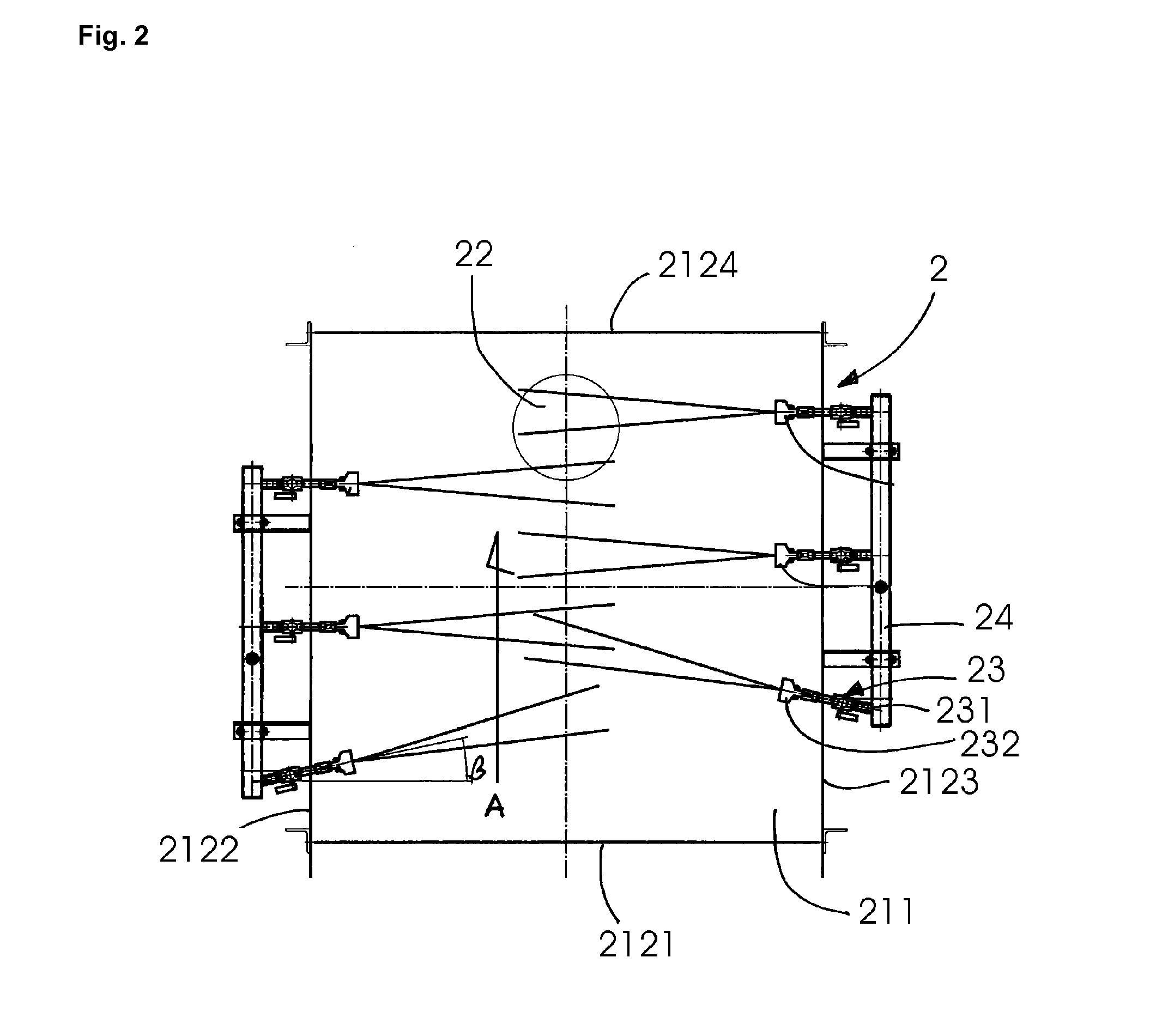Dust emission reduction during metal casting
a technology of metal casting and dust emission reduction, applied in the direction of drying machines with progressive movement, furnaces, lighting and heating apparatus, etc., can solve the problem of rare possibility, and achieve the effect of reducing the emission of diffuse dus
- Summary
- Abstract
- Description
- Claims
- Application Information
AI Technical Summary
Benefits of technology
Problems solved by technology
Method used
Image
Examples
Embodiment Construction
[0053]FIG. 1 shows a cross sectional view of a preferred embodiment of a metal or slag casting apparatus 1. The cross section represented by FIG. 1 is located in the first section of the endless conveyor 3 between the casting station (not shown) to the discharge station (not shown). FIG. 2 corresponds to a top view of section X-X in FIG. 1, but of the dust control device only (conveyor not shown).
[0054]In this first section, above the endless conveyor 3 having a plurality of casting molds 31, a dust control device 2 having a casing 21 comprising a top cover 211 and peripheral sidewalls 212 is provided. The peripheral sidewalls comprise, relative to the conveying direction A (see FIG. 2), a front part 2121, two lateral parts 2122, 2123 and a back part 2124.
[0055]A plurality of blowing nozzles 23 (of which two are shown in FIG. 1) are arranged such that their outlets 232 are located within the casing 2 at an angle α with respect to the top of the casting molds 31. The outlet 232 of th...
PUM
| Property | Measurement | Unit |
|---|---|---|
| angle | aaaaa | aaaaa |
| angle | aaaaa | aaaaa |
| angle | aaaaa | aaaaa |
Abstract
Description
Claims
Application Information
 Login to View More
Login to View More - R&D
- Intellectual Property
- Life Sciences
- Materials
- Tech Scout
- Unparalleled Data Quality
- Higher Quality Content
- 60% Fewer Hallucinations
Browse by: Latest US Patents, China's latest patents, Technical Efficacy Thesaurus, Application Domain, Technology Topic, Popular Technical Reports.
© 2025 PatSnap. All rights reserved.Legal|Privacy policy|Modern Slavery Act Transparency Statement|Sitemap|About US| Contact US: help@patsnap.com



